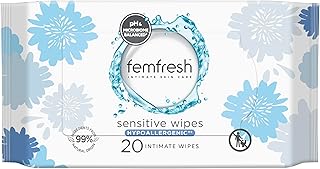Female hygiene products have long been marketed as essential for maintaining vaginal freshness. However, experts caution against their use, stating that these products can be unnecessary and potentially harmful. Deborah Bateson, an associate professor at Sydney University, emphasizes that the feminine hygiene industry often perpetuates unrealistic standards of cleanliness, leading many women to feel insecure about a natural bodily function.
Vaginal discharge, a normal and healthy occurrence, serves vital functions in the female reproductive system. As Dr. Bateson explains, it acts as a lubricant during intercourse and serves as a protective barrier against infections. Understanding one’s unique vaginal environment is crucial, as changes in discharge color, consistency, and volume can indicate shifts in hormonal levels throughout the menstrual cycle.
During ovulation, vaginal discharge becomes stretchy and slippery, optimizing conditions for sperm survival. Conversely, post-ovulation, discharge thickens due to hormonal changes. Pregnancy and menopause also influence discharge patterns, highlighting the dynamic nature of vaginal health across a woman’s life stages.
Disruptions to the vaginal microbiome can lead to infections such as thrush and bacterial vaginosis. These conditions, characterized by changes in discharge consistency and odor, necessitate prompt medical attention to prevent complications. Maintaining a healthy vaginal microbiome is crucial for overall well-being and can impact a woman’s susceptibility to various health issues.
Dr. Elizabeth Farrell emphasizes the importance of good gynecological practices to support optimal vaginal health. Avoiding tight-fitting clothing, synthetic underwear, and excessive use of panty liners can help preserve the natural balance of vaginal flora. Douching and other intrusive practices are discouraged, as the vagina is self-cleansing and generally does not require external interventions.
While the market is flooded with products promising vaginal freshness, experts advocate for a simpler approach to hygiene. Warm water and mild soap for external cleansing are usually sufficient. Understanding and embracing the natural processes of the female body can empower women to prioritize their health without succumbing to societal pressures.
In conclusion, promoting awareness of vaginal hygiene practices rooted in scientific understanding and individualized care is essential for dismantling misconceptions surrounding women’s health. By encouraging women to embrace their bodies’ natural functions and seek medical advice when necessary, we can foster a culture of empowerment and self-care.
📰 Related Articles
- Why Female Hygiene Matters: Impact of Menstrual Care Workshops
- Experts Warn Against Storing Paint, Electronics, and Photos in Sheds
- Experts Warn Against Coffee Enemas for Health Benefits
- Why Choose Natural Beauty Products like Clinique’s Foundation for Radiant Skin?
- Why Bathroom Cleanliness Matters in Relationships: Female Hygiene Insights






